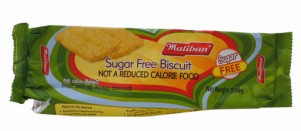One in five Sri Lankan adults are recorded to be either diabetic or pre-diabetic. In a country with a little over 20 million people, this represents a significant percentage of their population. Despite this growing health concern, Sri Lankans love rice, chocolate milk, fizzy drinks and even has one of the highest per capita consumption of biscuits in Asia with approximately 2-3 kilograms per person eaten each year according to Mintel’s research. Sweet biscuit launches are overpowering savoury ones, which also reinforces the Sri Lankans sweet tooth mentality.

The Sri Lankan biscuit industry is largely a duopolistic market with 2 leading players holding 90% of the market share. Ceylon Biscuits own 62% of market share, whereas Maliban Biscuits hold 28% of market share.
With an increased awareness of health risks, Sri Lankan consumers are open to trying out health biscuits. One of the ways to drive this will be through proactive communication from companies targeting specific consumers. Biscuit companies could see success by focusing on health claims and emphasizing the resulting well-being benefits to the consumer.






































